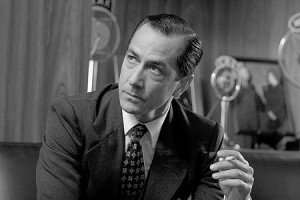Journalists are important. In my opinion, they’re very important. The best journalists, like Old Testament prophets, speak truth to power and reveal the ugly dirt behind the pretty and public veneer of society. Their very presence foils corruption or, at least, helps reveal it, punish it, and make it dive for deeper waters else go extinct. It was for this reason that Thomas Jefferson famously wrote:
“The basis of our governments being the opinion of the people, the very first object should be to keep that right; and were it left to me to decide whether we should have a government without newspapers or newspapers without a government, I should not hesitate a moment to prefer the latter. But I should mean that every man should receive those papers and be capable of reading them.” –Thomas Jefferson to Edward Carrington, 1787. ME 6:57
(I’m red-green color blind, so forgive me if that quote is purple or some weird color like that. I just meant for it to be navy blue. But I digress…)
Sadly, the last couple decades have seen the blurring of journalism and entertainment. So much so that shock jocks now get byline billing as journalists and real journalists, in the search for better ratings and higher SEO rank, debase themselves and their content by injecting shock appeal. (This trend isn’t a new thing, btw. Historically, journalism has had other nadirs in the past, the most prominent being the era of yellow journalism spanning the 1880’s to the early 1900’s.) Of course, we see this every day on our television and hear it all the time on the radio – have any radio stations on your car tuner that you always skip? But I’d hardly expect this sort of thing to insinuate itself into an industry news niche like IT journalism. I mean, c’mon! IT is about information after all, and any distortion should surely become apparent in due time.
(Full disclosure: I’ve never been a journalist, but I do write a couple magazine columns – one, a technical column, for SQL Server Magazine and one, an opinion column, for Database Trends & Applications.)
So I can only begin to explain how jolted I was by this news story released by ZDNet.
The team at ZDNet has done some crackerjack investigative reporting to reveal that an often quoted “Windows Performance Expert” and CTO of a performance management and monitoring products company, Craig Barth, is in fact a fabrication by a well-known reporter and blogger, Randall Kennedy. Both personalities frequently disparaged Microsoft (not that Microsoft isn’t an easy target, they made BOB after all) and, in some cases, evidently created their own aggregate data, which was then used to identify individuals and broach privacy standards. Kennedy goes on to say that he did this with full endorsement of the companies he wrote for, and I quote “They didn’t want to lose 2+ million page views per year, which is what the shock jock persona they developed for me delivered.”
Journalists, and the managers of journalists, should take this as a wake up call. When you’re a trusted person, that trust is often your most valuable asset. I know that the entire media industry is under assault and its revenues are shrinking. But I hope that this has the positive side-effect of reminding everyone involved that quality and credibility are invaluable. Said another way, it’s impossible to place a real dollar value on strong ethics, credibility and trustworthiness, except to know that it’s worth a lot. (Someone remind Toyota and the Wall Street bankers of that too, while we’re at it.)
Thoughts?
Thanks for reading,
-Kev
-Twitter @kekline



Speak Your Mind